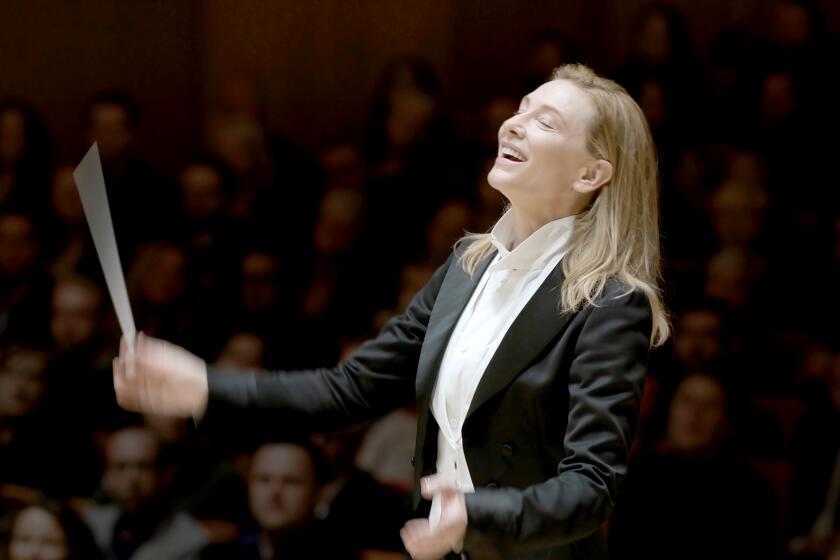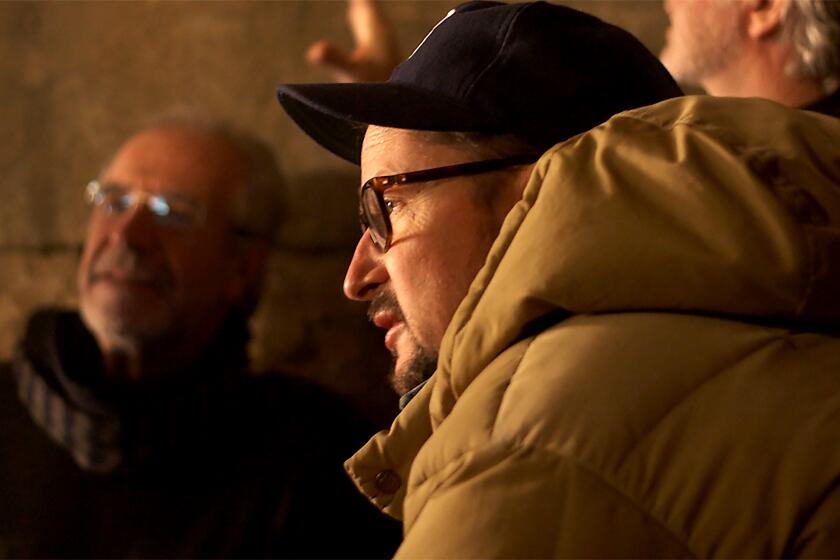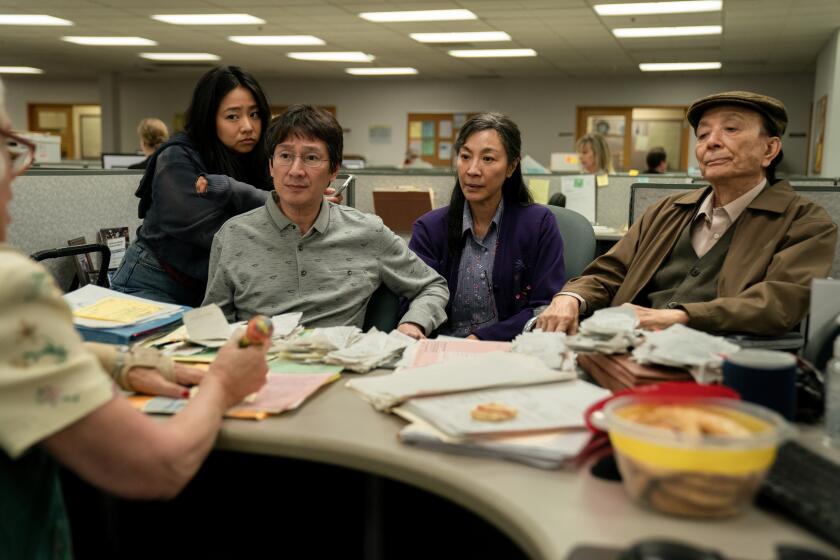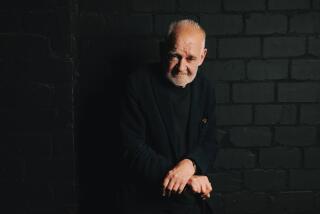This real-life conductor is mentioned in ‘Tár.’ And she’s not a fan of the film
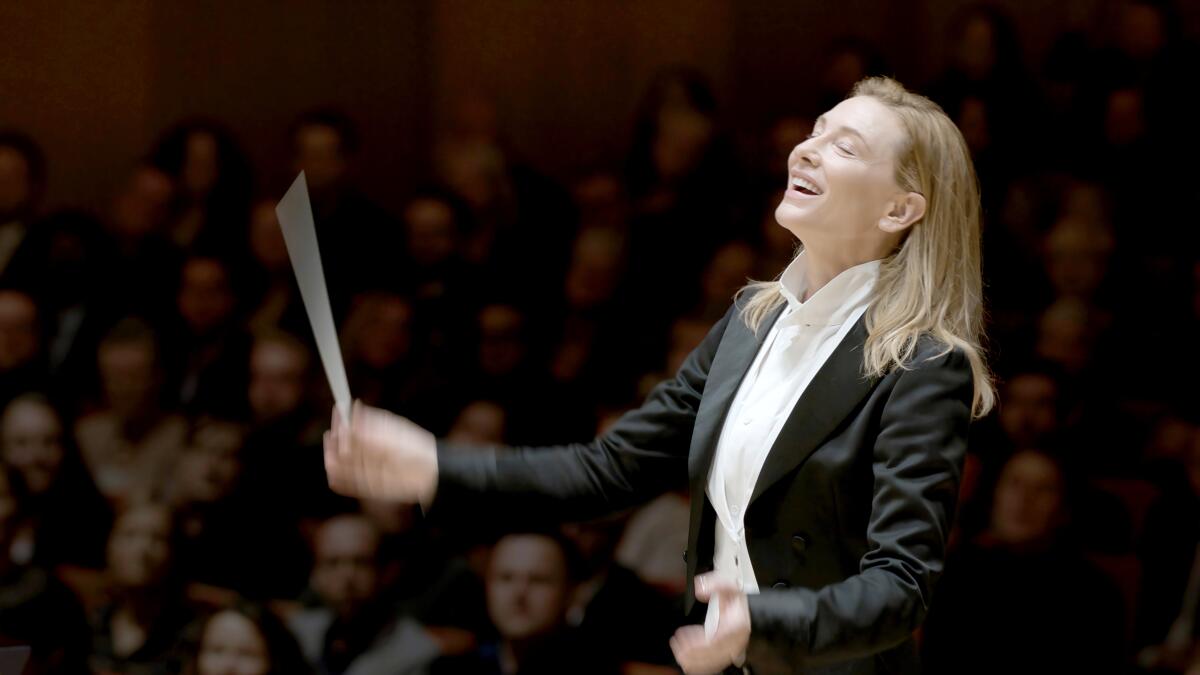
- Share via
Marin Alsop, a world-renowned conductor name-checked in “Tár,” is speaking out against the 2022 film and its antagonistic protagonist portrayed by Cate Blanchett.
In a recent interview with British newspaper the Times, Alsop denounced the prestige drama’s depiction of Lydia Tár — a fictional, abusive, narcissistic maestro who bullies her students and exploits her employees.
Alsop — a real-life maestro, principal conductor of the Vienna Radio Symphony Orchestra and esteemed MacArthur fellow from New York — is mentioned in the first half-hour of director Todd Field’s musical epic, according to the Times. However, she was not involved in the making of “Tár” and was “shocked” when she finally heard about the movie in late August.
Blanchett plays a renowned classical conductor whose world gradually comes apart in this virtuoso return to filmmaking from writer-director Todd Field (“In the Bedroom,” “Little Children”).
Though Lydia Tár does not actually exist, the Times points out that Blanchett’s character has some key similarities to Alsop (beyond their shared profession): Like Alsop, Tár teaches at a major American music conservatory, runs a conducting fellowship for young women in the industry and studied under conductor-composer Leonard Bernstein. She too is a lesbian who shares a child with her longtime partner — an instrumentalist.
“So many superficial aspects of Tár seemed to align with my own personal life,” Alsop told the Times. “But once I saw it I was no longer concerned, I was offended: I was offended as a woman, I was offended as a conductor, I was offended as a lesbian.”
Because “Tár” attributes the stereotype of an overbearing, pretentious virtuoso to a female character, Alsop continued, she worries that the film is “slightly dangerous because people may get confused about what’s real and what’s not.”
Cate Blanchett, director Todd Field and composer Hildur Guðnadóttir break down the vital role classical music plays in the critically hailed ‘Tár.’
In recent months, Blanchett has garnered widespread critical acclaim for her powerful turn as Tár. On Tuesday, she won the Golden Globe for lead actress in a drama, and on Wednesday, she scored a Screen Actors Guild Award nomination for her performance. She’s expected to pick up an Oscar nomination too.
“To have an opportunity to portray a woman in that role and to make her an abuser — for me that was heartbreaking,” Alsop told the Times.
“All women and all feminists should be bothered by that kind of depiction because it’s not really about women conductors, is it? It’s about women as leaders in our society. People ask, ‘Can we trust them? Can they function in that role?’ It’s the same questions whether it’s about a CEO or an NBA coach or the head of a police department.”
The orchestra conductor character wields ‘wile and guile’ to gain political currency, the director says. And striving only to leave a legacy is ‘a dead end.’
Alsop added that there “are so many ... actual, documented men” Lydia Tár emulates with her problematic and cruel behavior, yet the awards-season darling “instead ... puts a woman in the role but gives her all the attributes of those men.”
“That feels anti-woman,” Alsop continued. “To assume that women will either behave identically to men or become hysterical, crazy, insane is to perpetuate something we’ve already seen on film so many times before.”
Reflecting generally on the lack of opportunities and recognition for female conductors, Alsop said she does not believe women will ever be able to navigate the conducting world without barriers, and opportunities for them “will always need to be created.”
See which movie and TV ensembles are nominated this year for the Screen Actors Guild Awards, which will take place next month in Los Angeles.
“I’m an eternal optimist, otherwise I couldn’t have stayed in this field. But I’m also a realist. I’ve seen progress and then regression many, many times,” Alsop said.
“I’m hopeful that the progress we’ve made now is substantive and quantitative enough that it can’t be reversed, because I think there are those who would like to reverse it. ... So I’m both a realist and an optimist, and I say, let’s link arms and just keep on walking.”
Representatives for Blanchett, Field and Focus Features did not immediately respond Wednesday to the Los Angeles Times’ requests for comment.
Times news researcher Jennifer Arcand contributed to this report.
More to Read
Only good movies
Get the Indie Focus newsletter, Mark Olsen's weekly guide to the world of cinema.
You may occasionally receive promotional content from the Los Angeles Times.
